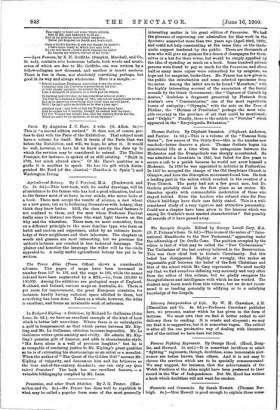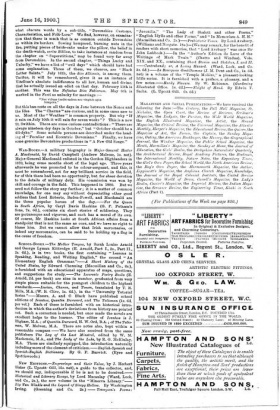what obscure words by a sub-title, "Devonshire Customs, Characteristics, and
Folk-Lore." We .find, however, on examina- tion that there is much that is as common outside Devonshire as within its borders. Sowing hempseed, burning nuts in the fire, putting pieces of bride-cake under the pillow, the belief in the death-watch, sorles Biblicas, to take instances at random from the chapter on "Superstitions," may be found very far away from Devonshire. In the second chapter, "Things Lucky and Unlucky," we have a list of "evil days" which should have had some explanation. Three of them, we observe, are "Black Letter Saints." July 16th, the dies Alliensis, is among them. Tacitus, it will be remembered, gives it as an instance of Vitelhus's absolute indifference to all law, human and divine, that he actually issued an edict on that day. February 13th is another. This was the Nefastus Dies Fabiorum. May 8th is marked in the Fasti as unlucky for marriage :— "Nec chime taedis eadetn nee Nirginls apta tempora."
But this ban rests on all the days in June between the Nones and the Ides. The " Charms " are curious, and in some cases new to us. Most of the " Weather " is common property. But why "If it rain on July 10th it will rain for seven weeks " ? This is a new St. Swithin. There are some curious contradictions : "There are always nineteen dry days in October," but "October should be a fill-dyke." Some notable persons are described under the head- ing of" Peculiar and Eccentric Devonians." Finally, we have some genuine Devonshire productions in "A Few Old Songs."







































 Previous page
Previous page